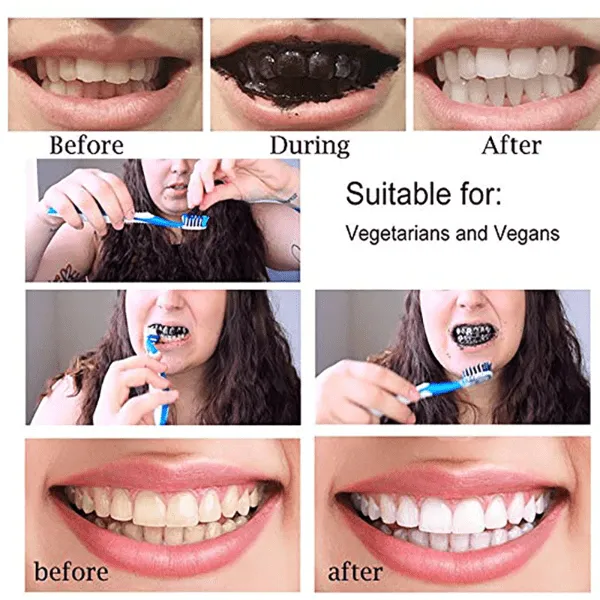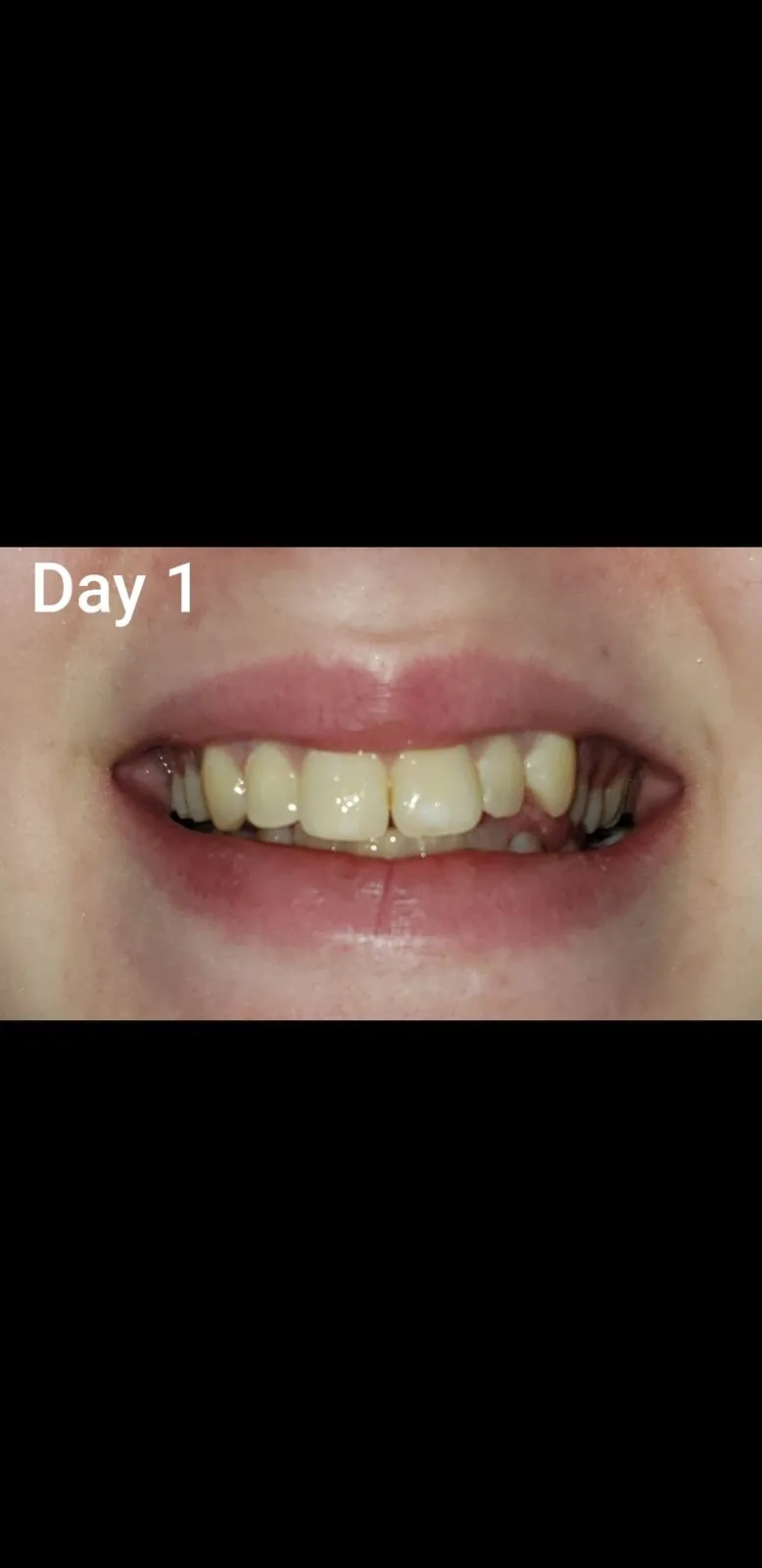What is Charcoal Teeth Whitening?
Charcoal teeth whitening has become a popular trend in recent years, with many people turning to activated charcoal as a way to brighten their smiles. But what exactly is it, and how does it work? Essentially, charcoal teeth whitening involves using activated charcoal, a fine black powder, to remove stains and discolorations from the surface of your teeth. Activated charcoal is produced by heating carbon-rich materials, like coconut shells or wood, to very high temperatures. This process creates a porous substance that can bind to impurities. In the context of teeth whitening, activated charcoal is believed to absorb stains from coffee, tea, wine, and other substances that can darken the enamel. It’s important to note that while it has gained popularity, its effectiveness and safety are still subjects of debate within the dental community, so always be cautious and seek your dentist advice.
How Charcoal Whitening Works
The mechanism by which charcoal teeth whitening is thought to work is relatively straightforward. Activated charcoal is abrasive, though to a much lesser extent than other whitening agents. When you brush your teeth with charcoal, it acts like a mild abrasive, helping to scrub away surface stains. The porous nature of activated charcoal allows it to attract and bind to staining compounds, like tannins found in tea and coffee. As you rinse the charcoal from your mouth, it carries these stains away, potentially leaving your teeth looking whiter. However, it’s important to understand that charcoal primarily targets surface stains. It’s less effective at addressing deeper stains, such as those caused by aging or intrinsic factors. Also, over-aggressive brushing with charcoal can potentially damage the enamel, making your teeth more susceptible to sensitivity and decay. Therefore, it is important to use this method cautiously.
The Role of a Dentist in Charcoal Teeth Whitening

Your dentist plays a crucial role in evaluating whether charcoal teeth whitening is a suitable option for you. They can assess the condition of your teeth and gums, identify any underlying dental issues, and offer personalized advice. Before using charcoal, your dentist can perform a thorough cleaning to remove plaque and tartar, which may enhance the whitening results. They can also advise you on the safest and most effective way to use charcoal, minimizing the risk of damage to your enamel. Furthermore, dentists can offer professional teeth whitening treatments, which often deliver more predictable and dramatic results than charcoal, using scientifically proven methods. Regular dental checkups are essential to monitor your oral health and address any potential problems that may arise from charcoal teeth whitening or any other whitening method. Don’t hesitate to consult your dentist before trying any new teeth whitening product or technique.
Benefits of Charcoal Teeth Whitening
One of the main perceived benefits of charcoal teeth whitening is its purported ability to remove surface stains, leading to a brighter smile. Many people find it to be a relatively inexpensive alternative to professional whitening treatments. The charcoal can be easily purchased over the counter, in the form of toothpaste or powder. Some users also appreciate that activated charcoal is a natural product, leading to a perceived sense of safety. Additionally, charcoal can help freshen breath by absorbing odor-causing compounds. Many users report a feeling of having cleaner teeth after using charcoal, which might be due to its abrasive action. These potential benefits make charcoal teeth whitening an appealing option for those seeking a quick and accessible way to enhance their smile. Remember that effectiveness can vary depending on individual circumstances and the type of stains present.
Potential Risks of Charcoal Teeth Whitening
While charcoal teeth whitening has its supporters, it also comes with potential risks that you should be aware of. As mentioned earlier, the abrasive nature of charcoal can damage your tooth enamel if used incorrectly or too frequently. This can lead to increased tooth sensitivity and a higher risk of decay. Charcoal is not effective at removing stains from below the surface of the enamel, and it can’t change the natural color of your teeth. It is also possible that charcoal can stain or discolor dental work, like fillings, crowns, and veneers. The lack of fluoride in many charcoal-based products means your teeth might not be getting the protection they need against cavities. Furthermore, some charcoal products may contain ingredients that can irritate your gums or other soft tissues in your mouth. Therefore, it’s crucial to weigh the potential risks against the perceived benefits and always consult your dentist before incorporating charcoal into your oral hygiene routine.
How to Use Charcoal for Teeth Whitening

If you decide to try charcoal teeth whitening, it’s important to use it correctly to minimize potential risks. Start by consulting your dentist. They can assess your oral health and recommend the most appropriate approach. Wet your toothbrush and dip it into the activated charcoal powder or apply charcoal toothpaste. Brush your teeth gently in small, circular motions for about two minutes. Avoid applying excessive pressure, which could damage your enamel. Rinse your mouth thoroughly with water to remove all traces of charcoal. You may need to brush your teeth a second time with regular toothpaste to get rid of any residual charcoal particles. It’s generally recommended to use charcoal whitening once or twice a week, not daily. If you experience any sensitivity, discontinue use and consult your dentist. Always supervise children when using charcoal teeth whitening products.
Consulting Your Dentist
Before trying charcoal teeth whitening, it’s essential to consult your dentist. They can assess your oral health and determine if it’s a safe and appropriate option for you. Your dentist can also provide guidance on how to use charcoal correctly, minimizing the risk of potential damage. They may recommend alternative teeth whitening methods, such as professional treatments or over-the-counter products that have been proven effective and safe. Regular dental checkups are also crucial for monitoring your oral health and addressing any potential issues that may arise. Your dentist can offer personalized advice based on your individual needs and dental history. They can also help you understand the limitations of charcoal teeth whitening and manage your expectations for the results. Remember, your dentist is your trusted partner in maintaining a healthy and beautiful smile. Make sure you visit them regularly and follow their recommendations for optimal oral health.
Maintenance and Aftercare
After using charcoal for teeth whitening, proper maintenance and aftercare are crucial for maintaining a bright and healthy smile. Continue brushing your teeth twice a day with a fluoride toothpaste to protect against cavities and strengthen your enamel. Floss daily to remove plaque and food particles from between your teeth. Rinse your mouth with an antibacterial mouthwash to kill germs and freshen your breath. Avoid or limit the consumption of foods and beverages that can stain your teeth, such as coffee, tea, red wine, and dark berries. Regular dental checkups and cleanings are essential for removing plaque and tartar and maintaining optimal oral health. Follow your dentist’s recommendations for any additional teeth whitening treatments or products. Proper aftercare will help you achieve and maintain a brighter smile while protecting your overall oral health. Remember, maintaining a healthy lifestyle, including a balanced diet and regular exercise, also contributes to a healthy and radiant smile.
